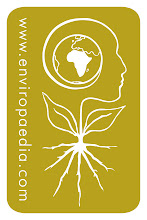Go along to your nearest Vodacare outlet and drop your old or damaged cellphone or cellphone accessory into the specially marked bin.
Most of the materials in your cellphone can be recovered. They can be used to make new products, and, in the process, help to protect the environment. Nokia estimates that if every cellphone user recycled just one old cellphone, nearly 240 000 tons of raw material could be saved.
To assist South Africans in safely disposing of their old cellphones, Vodacom and Nokia have launched take-back programmes. Both companies have stationed special bins in outlets across the country; Nokia has placed bins in about 35 locations and Vodacom in all Vodacare outlets nationwide.
Vodacare goes Green
Vodacom, South Africa’s leading cellphone network operator, has also embarked on a programme to show that the company can make a difference to the environment.
It has introduced a waste disposal process through Vodacare, allowing customers to dispose of all their unwanted cellphones and accessories in an environmentally friendly way.
"The take-back initiative has been positively received by our customers, as well as the general industry", says Executive Head of Vodacare, Samantha Dippenaar. "This initiative forms part of Vodacom’s environmental awareness responsibility, and the ‘take-back’ initiative forms part of this long-term commitment."
Vodacom believes that education and awareness in the area of waste management is becoming increasingly important from a global perspective and, together with the continued support of customers, they can make a difference to the environment and help to create a better place for all to live in.
Nokia scores with Greenpeace
In 2008, Nokia ranked the highest in Greenpeace’s annual survey for the Guide to Greener Electronics, largely for its comprehensive voluntary take-back programme which spans 124 countries, providing almost 5000 collection points for end-of-life cellphones and other mobile gadgets.
The world’s leading cellphone manufacturer also scored very well on toxic chemical issues. All new Nokia cellphones launched since the end of 2005 have been free of PVC, while it is also aiming to have all new models free of brominated flame retardants and antimony trioxide by the end of 2009.
Samsung gets green with Blue
Designed to symbolise a flat and well- rounded shiny pebble, Blue Earth is the first solar-powered full-touchscreen cellphone. It is made from recycled plastic water bottles and is free from harmful substances. The eco-friendly cellphone was launched at the annual Mobile World Congress, which was held in Barcelona in February 2009.
What happens next?
Once the bins have been filled, they are sent via courier to the Vodacare Head Office, where the waste products are separated and sorted into the correct groups such as cellphones, accessories and batteries.
 Vodacare destroys all collected cellphones
Vodacare destroys all collected cellphonesOn receipt of your old or damaged cellphone, a certified destruction agent punches a hole through the main board of the cellphone in order to ensure that it is scrapped and cannot be re-used.
The cellphones are destroyed by punching a whole right through the device
A Vodacare Recycling and Waste Management supplier then collects the full bins, which are weighed and signed for to ensure that nothing is removed during transit. An appointed Vodacare staff member also accompanies the Recycle and Waste Management supplier to its premises to witness the disposal of the waste products.
At the premises, the Vodacare agent witnesses the removal and sorting of the various components, such as non-ferrous and ferrous metals, plastics and PC boards, from the handsets.
All sorted!
Once these components have been sorted into their various categories, the metal components are melted down and the refined metals are then re-entered into the market. The balance of components disposed of into the materials granulator, which is the safest and most environmentally responsible way of disposing of these products.
[ Source :: www.vodaworld.co.za ]




